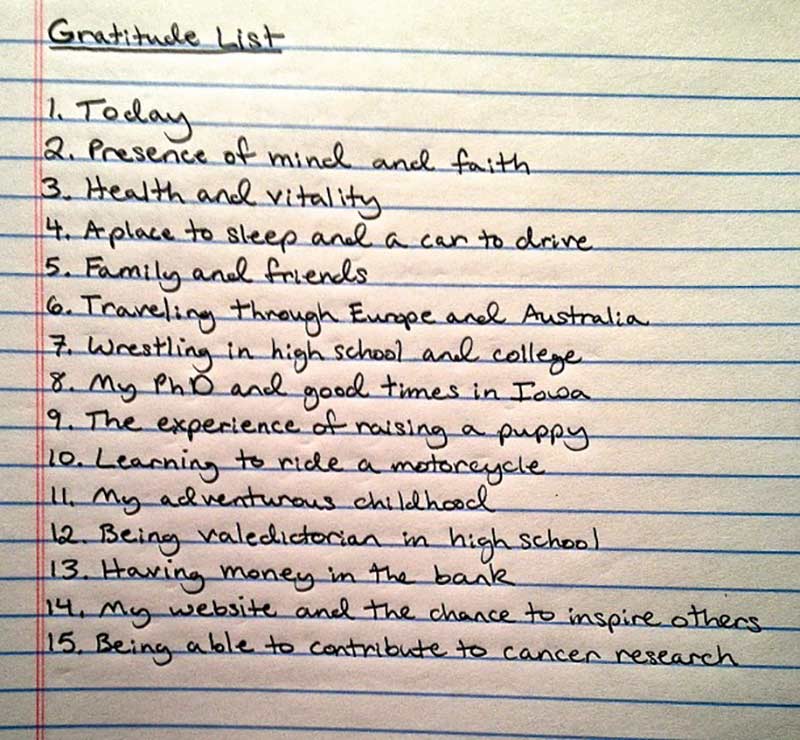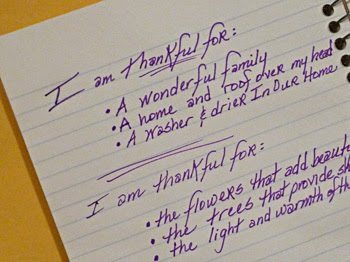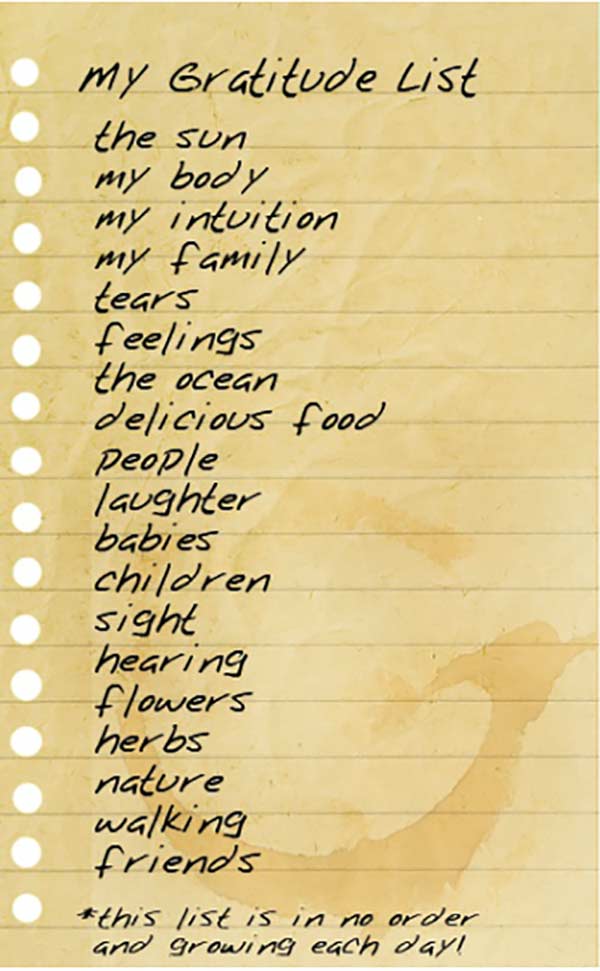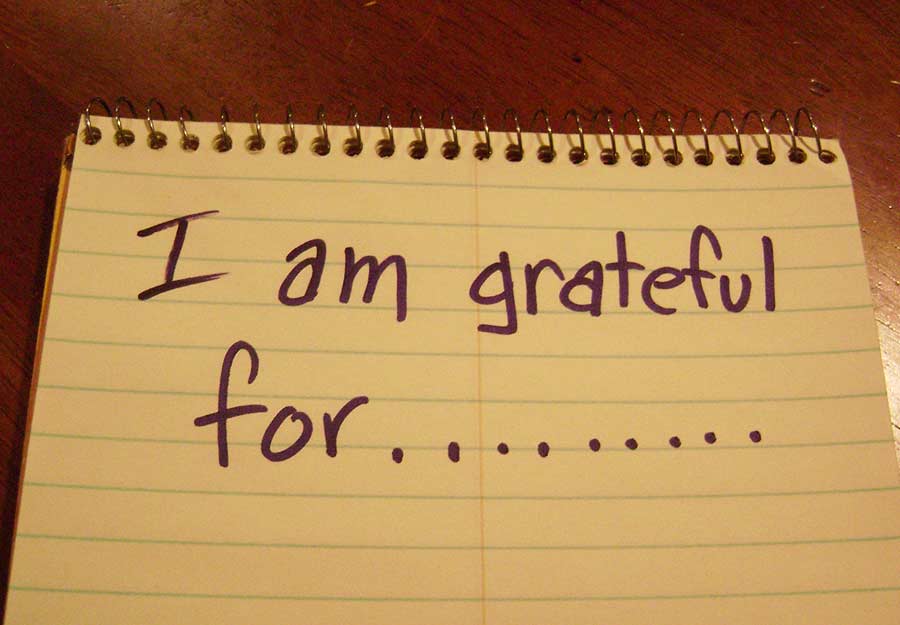How much easier would it be to quit smoking for good, if you had less stress in your life?
Much easier, right?
The reality is that at some point while quitting, something will stress you out: it can be personal, professional, financial or family problems- big or small.
It happens.
The problem?
When you’re stressed, your cravings will probably hit red, you won’t be able to think straight… and you might feel that smoking is the only way you can cope.
That’s why you need an effective, fast and proven stress-reducing strategy in place.
This exercise, that I will share with you in a bit, is part of the 3rd quit smoking stage of the CBQ Method, which is Change your smoking pattern. One of the things you do at this stage is to change how you feel about smoking and learn how to feel good without it.
And one of the most effective ways to feel BETTER without smoking is by… practicing gratitude.
Practicing WHAT?
You might wonder what gratitude has to do with anxiety.
Well, research from The Heart Math Institute and the National Institutes of Health (NIH), shows that regular practice of gratitude can dramatically change your body’s chemistry and reduce stress. Amazing, right?
And here’s the thing: IT’S VERY EASY to practice gratitude so you can avoid smoking when you feel anxious.
But before I show you how to do that, let me tell you why practicing gratitude can help you beat stress when quitting.
Why Practising Gratitude Eliminates Your Stress
1. Gratitude makes you happier.
In a study, scientists asked a group of people to keep a daily journal of all the things they were grateful for. And they asked another group to record all the things that annoyed them.
And guess what?! The people who wrote down the things they were grateful for were MUCH happier, determined, enthusiastic and energetic than the group of people who were focused on the negative aspects of their lives.
2. You cannot feel grateful and stressed at the same time.
It is practically impossible! Also, while feeling grateful you can’t feel depressed, cranky, or angry- which are common when stopping smoking. We can’t experience negative feelings when we feel grateful. Doesn’t happen.
Think about it like this: your stress is like a small child that’s easily distracted. When a child cries and you give them a toy, they will get distracted and stop crying. The same way, gratitude is like a toy that will instantly end any anxious thought.
You will be surprised by how much the practice of gratitude will reduce your anxiety and improve your relationships.
Let’s see how to do it.

The Gratitude Exercise
Do the following exercise in a quiet place so you can relax and stay away from your smokes.
Step 1. Rate your stress levels
I want you to rate how stressed, worried or anxious you feel, on a scale from 1 to 10. 1 for “relaxed”, and 10 for “I’m freaking out. I need a cigarette now”. This is important, because at the end of this technique we want to see how much you have reduced your stress.
Step 2. Focus on what you have

Close your eyes and begin to focus on something that you have in your life right now. Something that you feel a genuine sense of appreciation for.
If you allowed yourself to be grateful for something, what could it be?
Start by looking at the small things in your life- someone holding the door for you, a conversation with a stranger, a child’s innocent smile, a beautiful day, the fact that you are alive and can see, walk, talk and feel!
As you go on, focus on the bigger things you’re thankful for in your life. It can be your family, friends, work, your home or an adversity you were able to overcome.
It doesn’t matter what you feel thankful for. Remember, you are after the feeling of gratitude. And when you get it, you will feel an immense sense of relief.
After spending a few minutes on this step, move on to step 3.
Step 3. Write 3 things you are grateful for
Take a piece of paper, a notes app on your phone or a notebook and write 3 things you are grateful for. It doesn’t matter how many things you thought about during step 2. Just select 3 and write them down.
For example:
I am thankful for…
I appreciate…. in my life
I am grateful I have….
Later you may want to expand and write why you are thankful for those things.
Tip: Writing will help you keep your hands busy so you can avoid smoking.
Note: Don’t worry about what you write. Your journal is for you.
Here are some examples of gratitude journals:



Step 4. Rate your stress levels again
Stop and check. On a scale from 1 to 10, how stressed do you feel now?
I promise you this: If you do all the above steps, your stress will drop at least 5 points.
So that’s it. Sometimes we are too bothered by the things we don’t have, that we forget to see the things we do have.
So I invite you to do this exercise. It will give you instant results. And if you do it often, you will soon find yourself escaping any stressful feeling in a matter of seconds.
You will be able to do this exercise with your eyes open while driving, while sitting at your desk, before you sleep at night or even while arguing with someone.
As Tony Robbins says:
“Trade your expectations with appreciation and your whole world changes in an instant ”
I am grateful I get to wake up in the morning and do the work I love.
I am also grateful that my dad shares all of my posts on the CBQ Method Facebook page (Thanks, dad).
NOW YOUR TURN!

[snmedia-display-if-not-get query=”inv” inv=”mcsofinv,websofinv”]
I believe it’s important to let all smokers know that there are ways to beat stress without suffocating their body with carcinogens.
So please take few minutes to do the following:
- If you have found this article helpful, please share it with someone in your life who may be struggling with stress.
- Today, try to focus on something you feel grateful for [/snmedia-display-if-not-get]
[snmedia-display-if-get query=”inv” inv=”websofinv”]
What are you grateful for today?Want to learn more ways to stop smoking without feeling stress?
I’m running a FREE webinar on the 3 real reasons you can’t quit and how to overcome them asap with the CBQ method. I also give you a step by step, day by day plan, so you can use the CBQ method all by yourself and quit easily and permanently.
Click here to register. (Seats are limited so register now to make sure you reserve your place.)
[/snmedia-display-if-get]
[snmedia-display-if-get query=”inv” inv=”web2sofinv”]
What are you grateful for today?
Want to learn more ways to stop smoking without feeling stress?
I’m running a FREE webinar on How to Quit Smoking Easily and Permanently with the 4 Stages of the CBQ Method.
And you’ll get a step by step, day by day plan, so you can use the CBQ method all by yourself and quit successfully without feeling anxious.
Click here to register. (Seats are limited so register now to make sure you reserve your place.)
[/snmedia-display-if-get]


